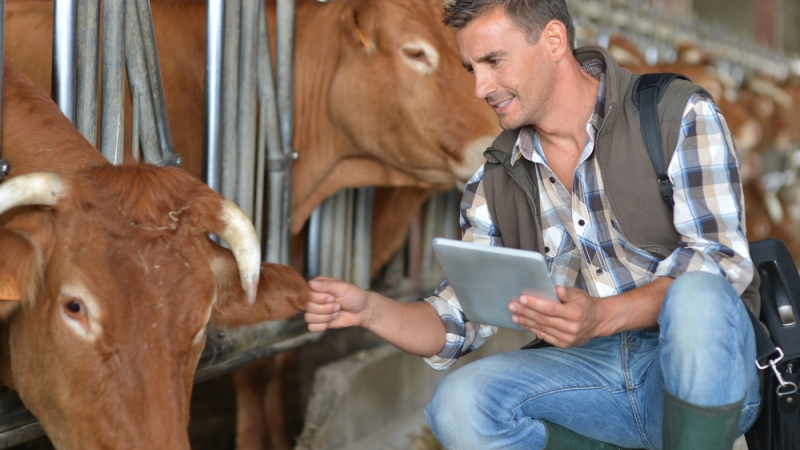
One House member today pointed to the need for more cybersecurity regulations in the agriculture sector, highlighting that the 2024 farm bill paves the path for legislation that does just that.
“The farm bill that just passed out of the Ag Committee, one of the pieces of legislation that I authored – The Farm and [Food] Cybersecurity Act – was included in the farm bill,” Rep. Brad Finstad, R-Minn., said during the Hack the Capitol event in D.C. today. “So as this moves through the process, we do have some cyber language in the farm bill.”
The Farm and Food Cybersecurity Act gives the secretary of Agriculture “a seat at the table,” Rep. Finstad said. The agriculture lead will be required to coordinate with the secretaries of Homeland Security and Health and Human Services, as well as the director of National Intelligence, to conduct an annual cross-sector crisis simulation exercise for food-related cyber emergencies or disruptions.
“What we’ve seen is a lot of siloed approaches to how we look at the threats, and Agriculture always kind of gets left off because of our independent streak, and, quite frankly, the maybe lack of understanding of how high tech we have become in farm country,” Rep. Finstad said.
“We’re just calling it out in the farm bill and saying listen, we have got to get Agriculture at the table here and get cross-agency communication threat assessments starting to happen,” he continued, “hopefully that will spur that offensive mind of, alright, here’s the threat and here’s how we have to attack this going forward.”
The lawmaker said that food security and national security are intertwined.
“Food security is national security, and some of the most simplest things that we overlook,” Rep Finstad said.
He said the district that he represents in Minnesota sends about 50,000 hogs to production facilities every day, and as a country, the U.S. holds about six days of fresh pork in cold storage.
“What if someone started messing with the temperature of those cold storage facilities? It would devastate us. It would take a number one protein in our diets off the map. And that again, would make us all vulnerable and you would see the dominoes fall,” he said.
“I think [agriculture] is the top three most hacked industries,” Rep. Finstad said. “And quite frankly agriculture as a sector is more of an independent-minded sector. We have a lot of small to midsize businessmen and women that are involved in agriculture. It’s not just the big players … I don’t have the infrastructure, the knowledge or the money to invest in a cybersecurity program or a cyber [expert] – someone that’s just going to have that hat on all day. And so that then makes us vulnerable.”
